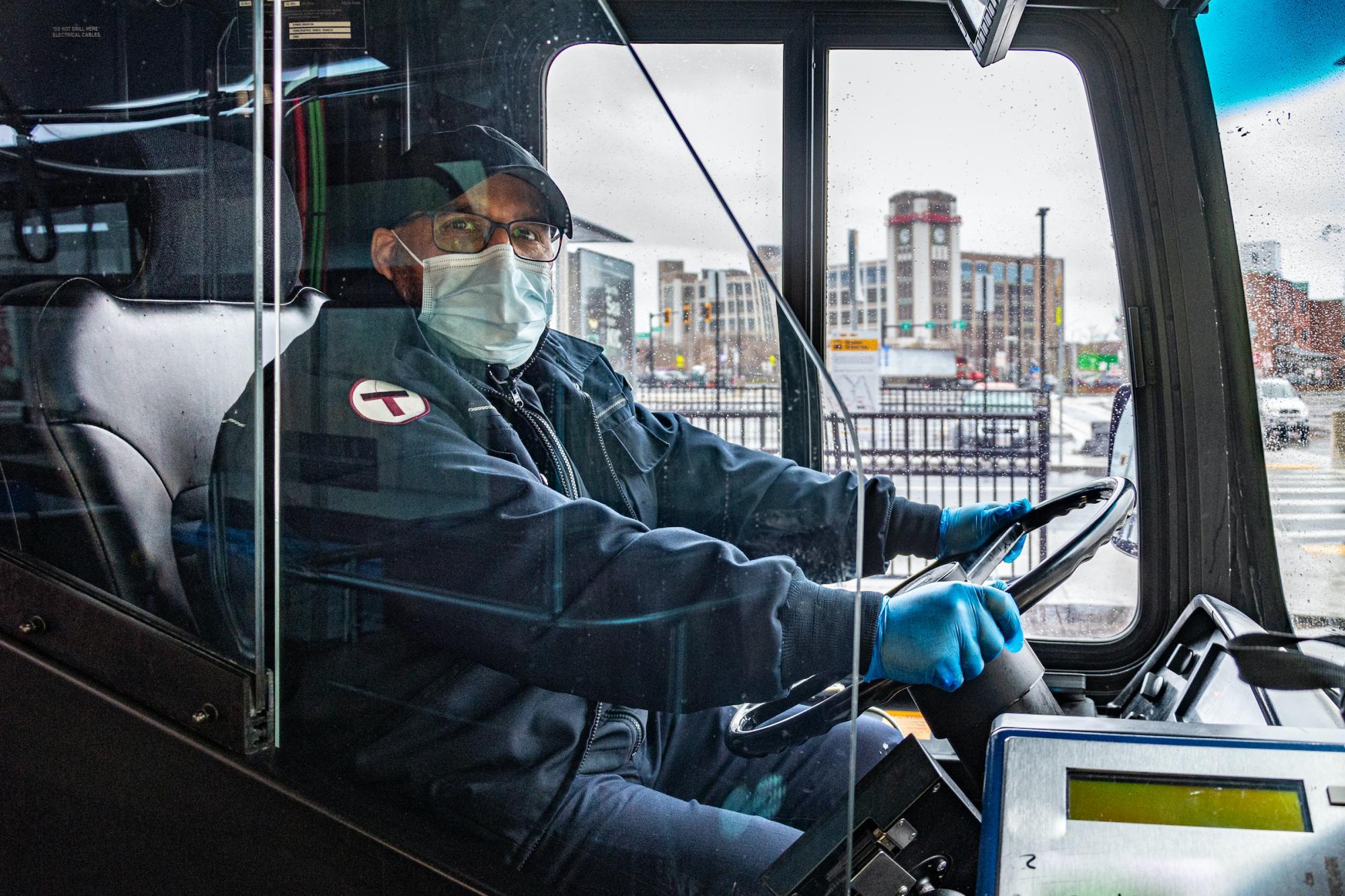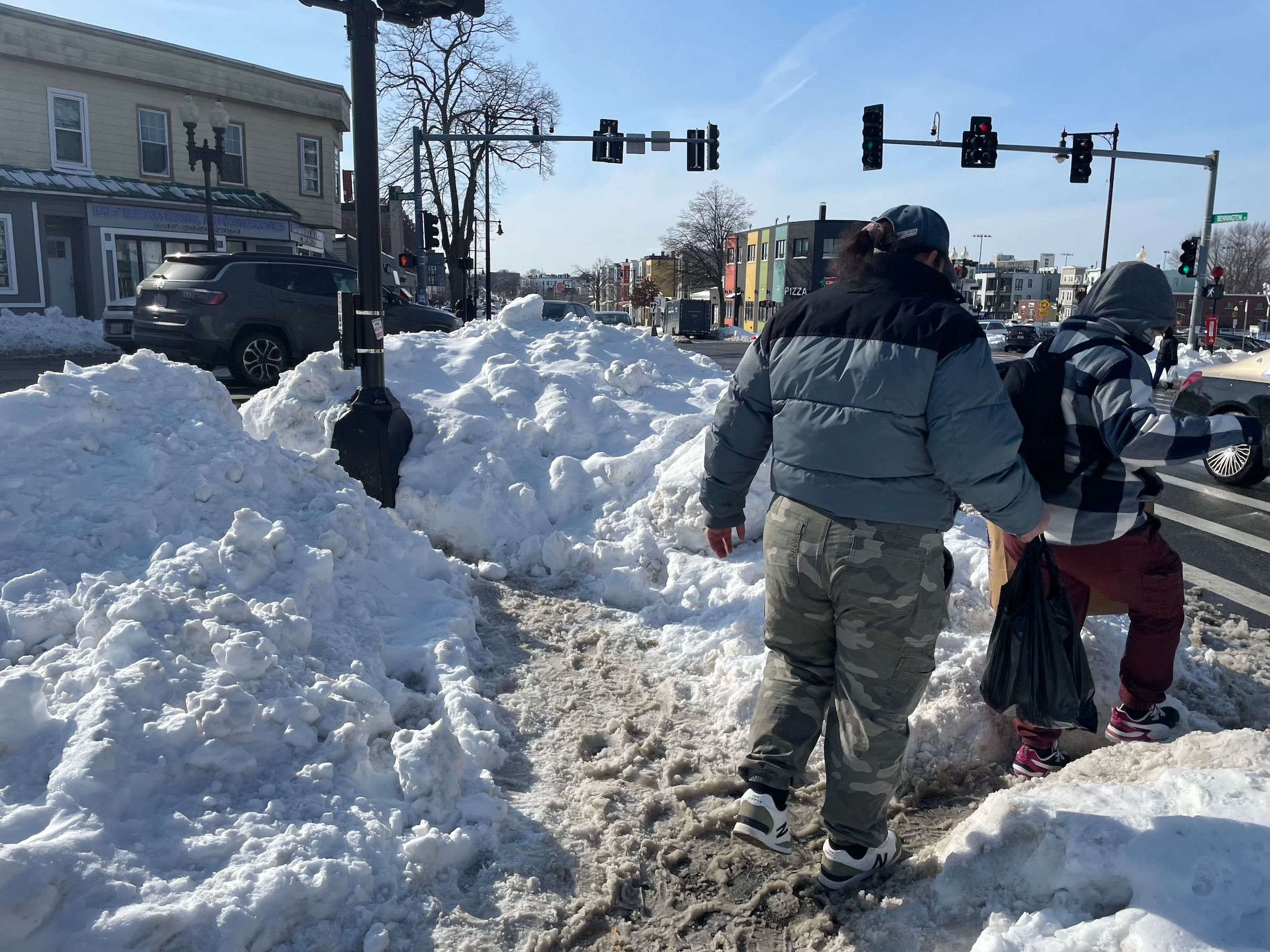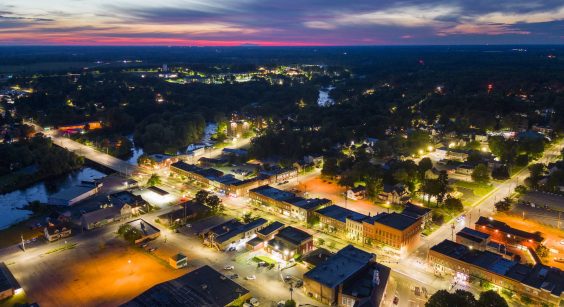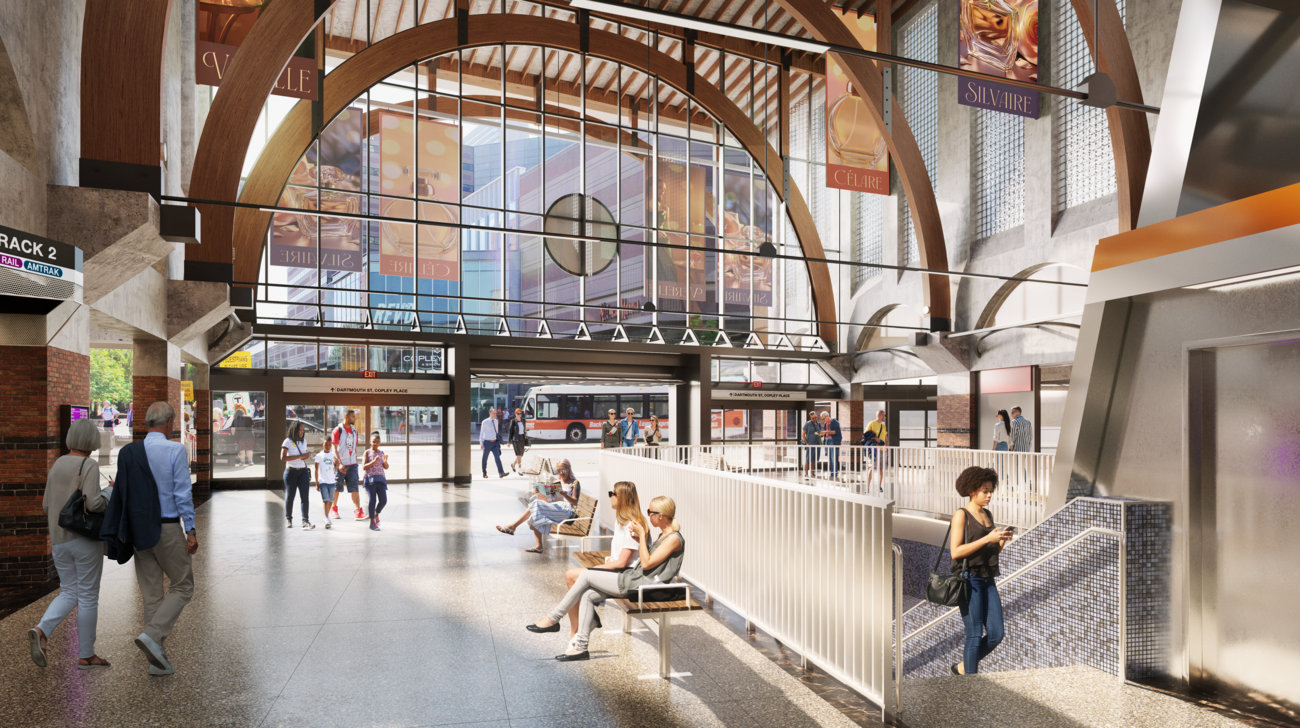
While the T blames a shortage of bus drivers for a wide-ranging round of bus service cuts that will take effect next week, its new union contract, which was approved Thursday afternoon by the MBTA Board of Directors, makes only nominal efforts to improve hourly wages for entry-level drivers.
The T is scrambling to recruit new drivers, but those efforts are being sandbagged from a 2016 labor deal that reduced entry-level wages for new bus drivers by 18 percent.
Under that agreement, new MBTA bus drivers in 2021 earn only $21.13 an hour, and are limited to working only 30 hours per week.
New drivers are also subject to difficult, often inconvenient work schedules. An MBTA job description asks applicants to "have the ability to work any and all shifts and/or locations assigned or directed" and "be available to work twenty-four (24) hours per day, seven (7) days per week, 365 days per year."
In a December 8 public meeting on the T's proposed winter service cuts, Kat Benesh, the T's Chief of Operations Strategy, Policy, and Oversight, said that "we are facing a significant workforce shortage. This is driven by national trends as well as some internal factors... throughout the nation, everyone is facing a shortage of commercial drivers' licenses, which is the key license that you need to be a bus operator."
The T's terms for new drivers compare poorly with competing private-sector driving jobs in the Boston region. A search for "commercial drivers license" in the Boston area on indeed.com yields hundreds of listings offering $30 per hour or more in full-time positions.
On Thursday, the MBTA board is expected to vote on a new labor contract with the Boston Carmen's Union Local 589, the union that represents bus and train operators.
According to excerpts from that contract obtained by StreetsblogMASS, the new deal would give drivers a modest raise (5.1% over two years, with this year's wage increase retroactively applied to wages earned since July).
But that raise would be applied at the same rate for all drivers, without additional increases at the entry level to help entice new drivers.
Under the current and the proposed new contract, drivers are subject to a "wage progression" in which they earn an increasing percentage of the top-tier wage based on their seniority.
Under the current agreement, the top wage is $38.44 per hour, and the $21.13 hourly wage for entry-level drivers is 55 percent of that top wage.
Drivers at the next step earn 60 percent of the top wage ($23.06/hour), "step 3" drivers earn 65 percent ($24.99/hour), "step 4" drivers earn 75 percent ($28.83/hour), and "step 5" drivers earn the full $38.44/hour. Drivers typically take 4 to 5 years to progress through the 5 steps.
Under the previous labor deal, in effect through fiscal year 2016, new drivers earned a higher percentage, and wages at each step were considerably closer to the top wage:
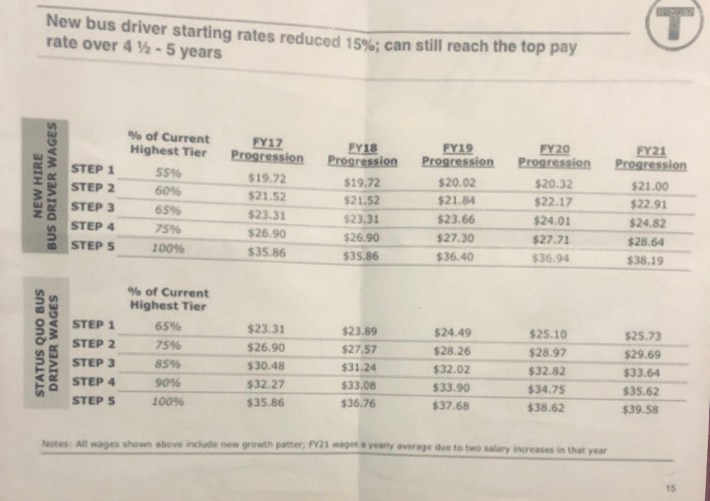
In 2016, for instance, a new driver would have earned $23.31 per hour, or 65 percent of the top wage.
But drivers hired a few months later, after the new agreement took effect, earned only $19.72/hour – an 18 percent reduction.
At the time, Transportation Secretary Stephanie Pollack told State House News reporters that the pay cuts for new hires were "really about creating long-term financial viability for the T... this agreement is about the long term, and about reinventing the T in a way that is sustainable financially, but that is also sustainable in terms of a labor-management context."
The new labor agreement makes no changes to those wage progression rates for new drivers.
However, it does add a new provision that will allow the T's management wide latitude to offer bonuses to new hires, which could help compensate for the lower starting pay rate.
"In order to recruit new hires into the positions of bus and train operators, the MBTA may offer a signing bonus of any amount, to be paid in a manner set by the Authority," according to a press release about the new agreement that the MBTA issued Thursday afternoon.
The new agreement also raises the "training wage" that recruits earn while they earn their commercial drivers license, and also makes efforts to convert more part-time drivers to full-time employment to get more shifts out of existing employees.
